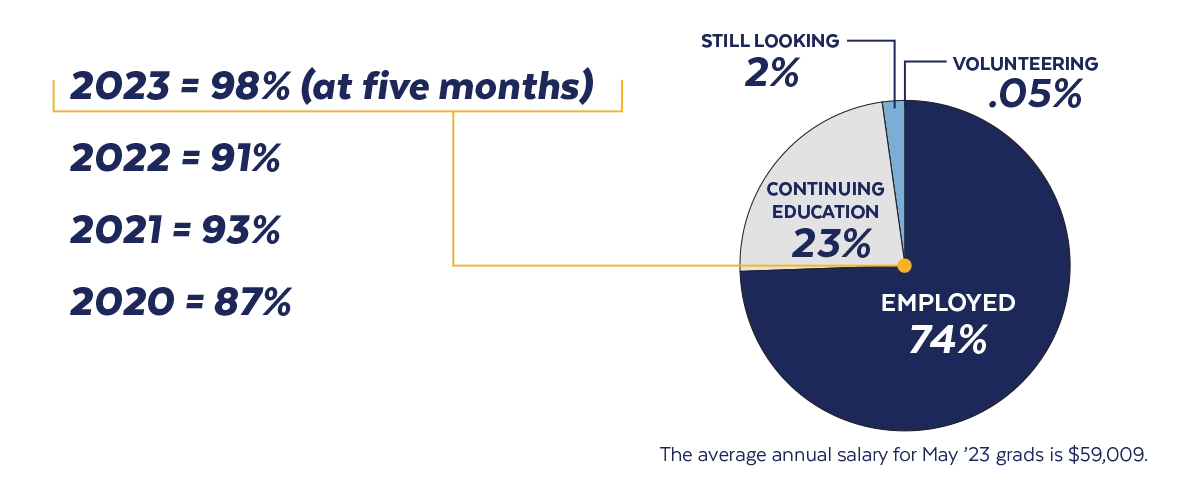From the moment she started as director in 2022, Christi Gierhart knew one of her top goals was growing Marietta College’s Physician Assistant Studies Program from 36 to 40 students.
Just 17 months later, Gierhart’s vision became reality when the Accreditation Review Commission on Education for the Physician Assistant (ARC-PA) approved a proposal allowing the College to enroll 40 PA graduate students starting in June 2024.
“This was no small accomplishment,” Gierhart says. “It demonstrates ARC-PA’s recognition of the exceptional caliber and quality of Marietta’s PA program and the strong outcomes of our students and graduates. This program has a long tradition of excellence, and increasing enrollment allows us to further align with the mission and goals that Dr. Gloria Stewart founded the program on in 2001.”
The competitive 26-month PA program entails rigorous medical training and clinical rotations. By expanding the cohort size while maintaining Marietta’s high standards, the College can fulfill its mission of preparing more qualified PAs to serve regional healthcare needs.
Gierhart credits the program’s dedicated faculty and staff for helping secure this enrollment increase through their commitment to student success. She also thanks the many healthcare partners who provide exceptional clinical training experiences across Ohio, West Virginia, and beyond.
“We are excited to increase our cohort size to 40,” says Dr. John Grosel, Medical Director for the PA Program. “It will further our mission of training physician assistants to provide excellent care to patients in the Appalachian region and Ohio.”
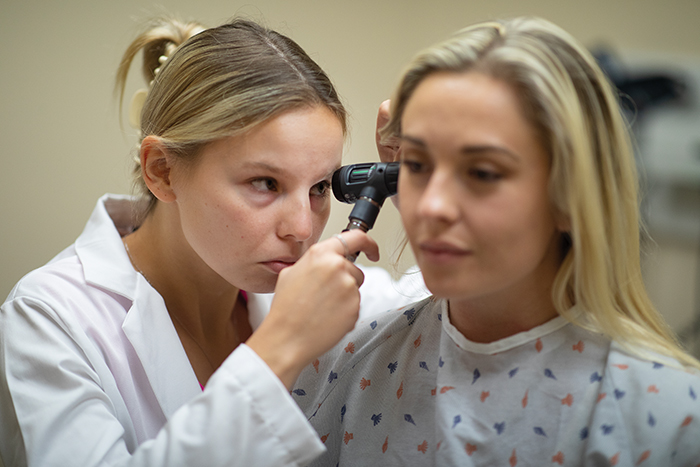
After joining Marietta, Gierhart quickly immersed herself in learning about the PA program while also stabilizing key aspects of it. This understanding allowed her to develop a strong proposal and timeline that she presented to the College’s Trustees in July 2022.
The goal was to make the program even more competitive for a successful application to expand enrollment. The proposal outlined classroom adjustments, hiring additional faculty and staff, increasing trainers and manikins for skills labs, and building new clinical preceptor sites to support 40 students.
Thanks to a generous anonymous donation, the program secured funding for these improvements. With a total team effort, Marietta submitted its application in May for consideration at the ARC-PA’s September meeting. This thoughtful planning and preparation paid off when the ARC-PA approved the expansion.
“This growth is a testament to the hard work of our team and the quality education we provide to equip PA graduates for outstanding medical careers,” Gierhart says.
TOM PERRY
from Susan MacKenty Brady ’94
A celebrated leader, inspiring speaker, author, and executive advisor
1. Enable Your Best Self (and help others do the same)
What brings us meaning — and usually best effort and impact — is where our strengths add value to others and we experience vitality. Discover this in yourself and help others do the same — then leverage the heck out of it.
2. Activate Humble Curiosity
Learn to be a professional learner, not knower. Asking is honoring. Every situation (and person) is more complicated than any one person can see. Seek to better understand, and don’t forget: how you comprehend both your own and others’ story depends on where you sit.
3. Engage “WE” / Drop the “I”
Leading from “we” means sharing the job of problem solving, accountability, results and impact. This involves jointly crafting, sharing and discussing with others relevant decision-making criteria and maximizing perspective — to arrive at a path forward that enrolls as it forms.
4. Be Real About What’s Hard
Genuine wins. Learn and discuss how to effectively narrow the gap between your intention and your impact. You cannot create connection, innovation, engagement or pretty much everything else we want our teams and cultures to emulate if you neglect standing in grace about yourself and others.
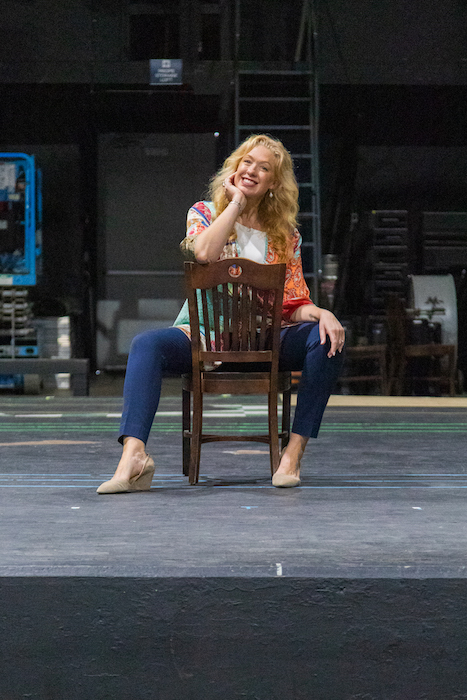
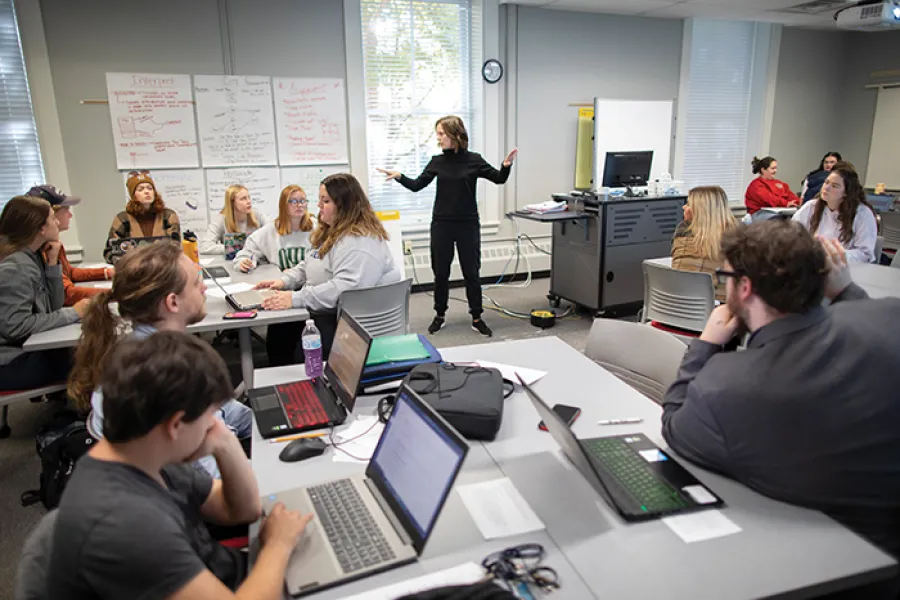
Marietta College is the first teacher preparation program in Ohio to have all of its programs fully blended, which means each of the degree programs offers the opportunity for teacher candidates to earn their certification in general education and special education in their chosen grade band (preK-5, 4-9, or 7-12). Additionally, Marietta’s new Wellness Education major is one of only two programs in the nation that is blended.
As he explored the groupings of trees and open green spaces of Marietta College’s campus during his first semester, Joshua Radloff ’25 saw endless possibilities. One idea resonated the most — what if there was a disc golf course weaving through the campus grounds?
Radloff began to envision baskets tucked into wooded areas and tee pads set up on open fields, turning the campus into an ideal setting for disc golfers. Radloff set out on a mission to share his vision and make it a reality.
“I noticed that there was enough space for a course on this campus. In the spring of 2022, I created the Marietta College Disc Golf Club (MCDGC),” says the Milford, Ohio, native. “After seeing my brother play for his college’s disc golf team, I knew I wanted to make my own. The best way that I saw to do this was to first make a convenient place for people to play on campus.”
He presented his idea to multiple groups on campus, but the most important presentation was when he spoke to the President’s Cabinet.
“I was just patiently waiting to hear back about a donor. After waiting for a year, I was afraid this would never happen,” says Radloff, a Mathematics major. “I later learned they found a donor and used my original design to create a new layout. Finally, after two years of work, this course will finally become a reality.”
The idea resonated with MC Trustee Andrew Ferguson ’95 and he was looking for a way to honor his friend — former Trustee Mark Bradley, who died in 2022 at the age of 52 — so he donated the money for the 9-hole course.
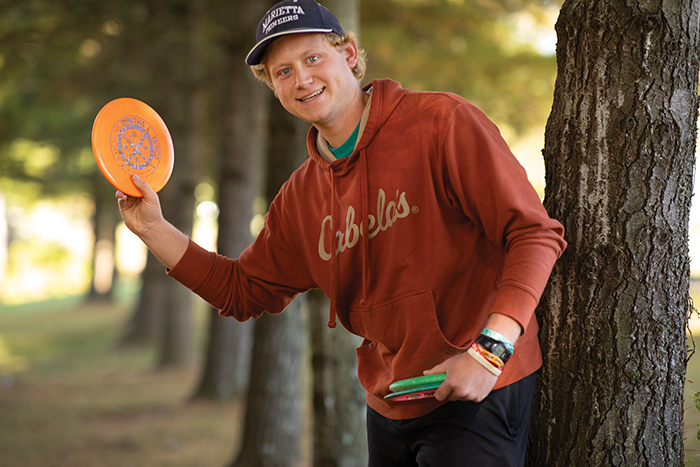
“Some donors to the College approach giving in a unique way — they request that we call them for funding when we have a specific need that would benefit students and engage alumni at the same time,” says Dr. Josh Jacobs, Vice President for Advancement. “This project, having been proposed by a student, benefits campus and provides a place for alumni, students, and community members to interact together. I think it fits perfectly at Marietta.”
Appalachian Disc Golf in Vienna, West Virginia, installed the course, which was dedicated at homecoming. It also helped brand the tee pads and baskets.
“I am relieved because I never thought that this would ever happen. I want this course to be successful and fun for all,” Radloff says.
Tom Perry
May Coryell ’73 and her wife, Peg Batchelder, pulled up to an intersection in the middle of an August afternoon.
“When we looked left, it was dark; and when we looked right, we could see just a little hint of blue in the sky, so we chose to drive right and head north,” Coryell says.
That darkness, as they learned just minutes before escaping in their car, was smoke and ash from a massive wildfire that was tearing through their beloved Lahaina Town on Hawaii’s island of Maui. Before the power went out at 3:00 a.m., they had seen on the news that high winds from a hurricane were expected in the area. High winds meant the couple would hole up in their condo and wait for the storm to pass. Without electricity or internet — or even emergency sirens to warn residents of danger — they had no idea what was coming for them.
“At one point in the afternoon, I saw an orange glow through the front window, so I opened the front door and saw that there was a truck on fire right outside in the parking lot — right in front of our home.” Batchelder says.
They tried unsuccessfully to find their two cats, but the threat of the truck exploding forced the women to flee with only the clothes they were wearing and their handbags. With no emergency personnel directing evacuations, Coryell and Batchelder had to rely on their instincts and try to drive north, hopeful that the wildfire wouldn’t jump the road. The couple reached their first shelter in the town’s Civic Center, but safety was short-lived as the fire advanced.
“There was no formal announcement — information was spread through word of mouth — but we knew we had to leave. We kept going north until we reached a strip mall parking lot, where we spent the night. We went to a nearby beach to use the facilities the next morning and a woman said they were opening a shelter at Maui Prep (school), which is in a part of Maui that didn’t have the fire.” SAYS WHO?
After going to three shelters, the couple were finally safe from the immediate wildfire danger and able to connect with friends and family, including Coryell’s Alpha Gamma Delta sorority sisters from her time at Marietta. Through her Marietta and Peace Corps connections, as well as family, Coryell and Batchelder were able to find housing and other support.
The two visited campus for Homecoming and Coryell’s Golden Reunion in October, and Batchelder was able to meet about two dozen of Coryell’s sorority sisters, who were able to obtain an Alpha Gamma Delta patch to replace the one she lost in the fire.
Coryell, who relies on a wheelchair for mobility, is thankful that her wife was home that day to help her escape the fire.
“I wouldn’t be here without her,” Coryell says, tearfully motioning to her wife. “I have been looking forward to celebrating my 50th reunion since I was a student. I remember Homecoming as a student. I was amazed that people came back for their 50th anniversary. I was like, ‘Wow, they’re really old. I want to be really old and come back for my 50th.’ Well, I made it. I made it because of her.”
Gi Smith
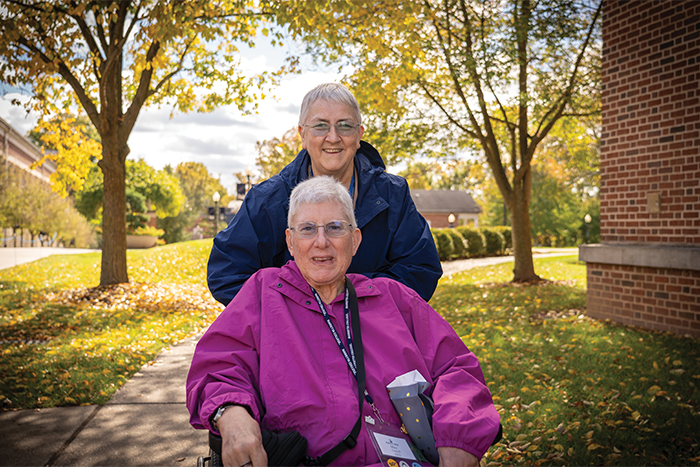
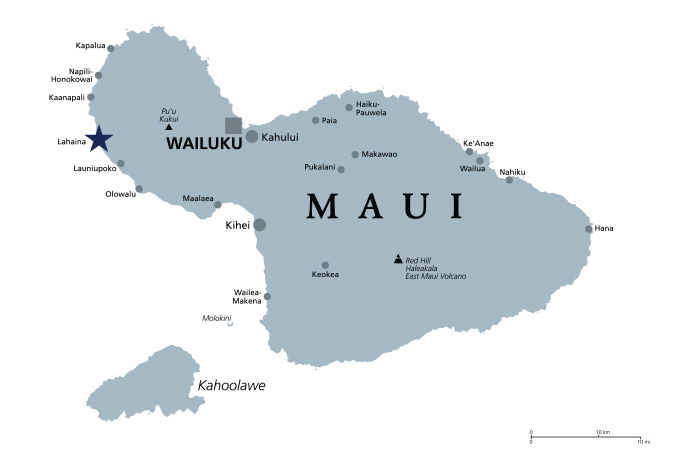
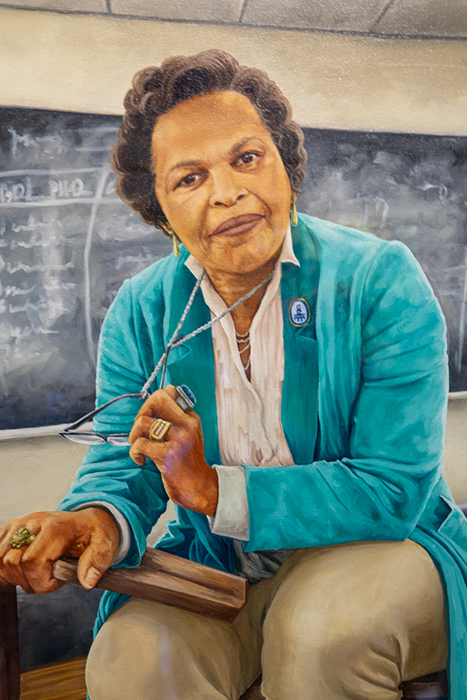
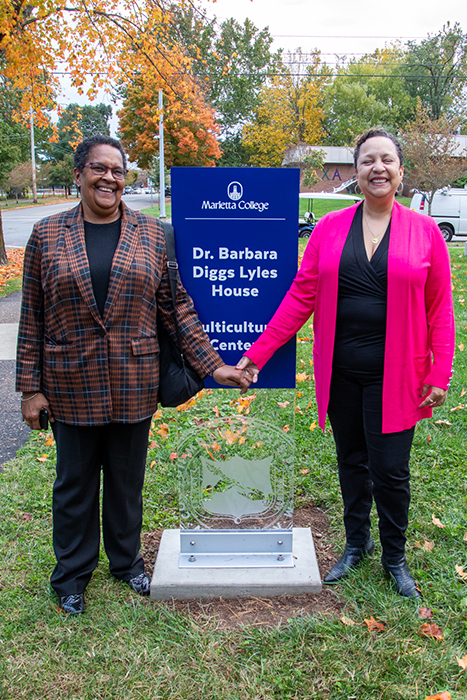
When Barbara Diggs Lyles ’51 arrived on campus in the 1940s, the young woman was met by College administrators with anything but enthusiasm. Despite having immense pressure and expectations to be a perfect student, Lyles became the first female Black graduate of Marietta College.
During Homecoming, the campus community joined together to honor the memory of Lyles, who passed away in 2012, by dedicating the Dr. Barbara Diggs Lyles House, formerly the Arts & Humanities (A&H) House. Among those in attendance were Lyles’ daughters, Jocelyn and Lauri Lyles.
“I am so very overwhelmed and emotional about this, and I want to thank each and every one of you for your power, for your energy, for everything you’ve done to make this possible,” Jocelyn Lyles says.
The Barbara Diggs Lyles House houses the Multicultural Center, as well as a residence hall devoted to diversity. Funds raised during Day of Giving supported the renovation of the Multicultural Center and the addition of signage. Tony Mayle, Associate Dean of Students and Director of Diversity & Inclusion, says future fundraising will focus on renovating the kitchen, residential rooms and HVAC.
Mayle invited a variety of student and alumni representatives to talk about the organizations that utilize the Multicultural Center, including Brother2Brother, Global Connections, Black Student Union and Women in Leadership. He also pointed out a special plaque on the wall featuring the names of Marietta’s African American graduates up to 2014. Lyles is the 13th name listed.
“I never met Barbara Diggs Lyles, but I wish I had,” says Marietta College President, Dr. Margaret Drugovich. “When I read the Board’s resolution recognizing her efforts, I read in that resolution admiration for her accomplishments as a scholar and a pioneer. When I read about her career, I read about a woman who was determined to unlock the future for others; in other words: to battle ignorance through her teaching and her scholarship. When I read her own words about her experience at Marietta, I read someone capable of understanding and capable of forgiveness. I look at her photo in the yearbook and I see cool determination with an eye to the future. She must have been both cool and determined to be the first African American female graduate of Marietta College.”
Gi Smith
Among the many courses Dr. Nicole Livengood, McCoy Professor of English, teaches, her Banned Books class piques some of the most interest among students. Though she isn’t teaching the course again until spring semester, Livengood took the opportunity to connect her current English 203 class with two alumni who have experienced what happens when certain publications are being targeted.
Eric Wilska ’72 has owned and operated a bookstore for nearly five decades — first opening The Bookloft in Great Barrington, Maine, and then owning and operating Shaker Mill Books, a store that primarily deals in rare books. Ken Werner ’72 is a retired high school history teacher, a position he held for 32 years. The two friends returned to campus in October to interact with Livengood’s English 203 class.
“Banning books isn’t just a black and white decision, there are plenty of gray areas to consider — Who is the audience? Is it taxpayer funded? What is the impact?” Wilska says. “… What’s interesting is, according to The Washington Post, 60 percent of the books being challenged (in schools) is coming from 11 people. And I don’t think any of them were being challenged because of violent content — so that’s something to consider.”
The alumni posed questions to the students, who freely shared what their concerns were about censorship, instances that they felt it was necessary, and what impact book banning could have on future generations.
Livengood also asked the alumni to talk about potential careers for students interested in Humanities. Werner didn’t originally plan on going into teaching but after working with teachers involved in high school speech and debate, he decided to pursue further education to become one.
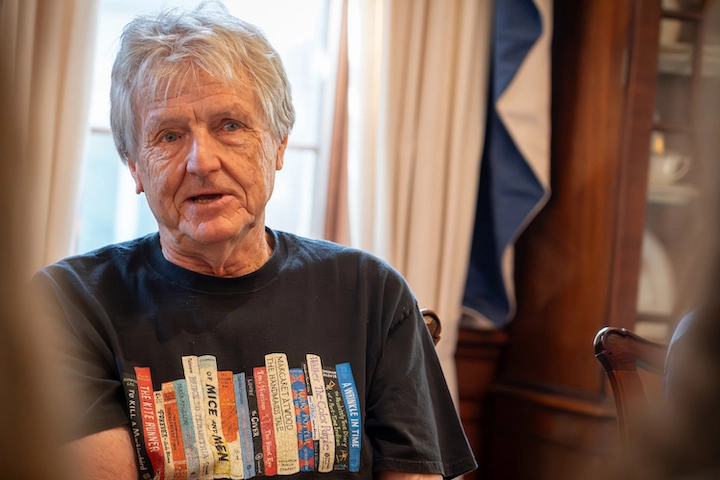
“There’s a pretty large shortage (of teachers) and it’s not just in parts of the country where there’s always been,” Werner says. “As far as studying English or History — any of the Humanities really — anything that makes you a better communicator and thinker is going to be in demand.”
Also during their visit, Wilska and Werner joined John Murphy ’64 — widower of Eric’s sister, the late Shawn Wilska Murphy ’64 — Murphy’s daughters, and his partner to meet the inaugural recipient of the Shawn Wilska Murphy ’64 Endowed Scholarship, Jazmyn Taylor ’27.
Wilska and Werner have been friends for more than five decades.
“Ken was the first person I met when I came onto campus a million years ago,” Wilska says. “We became fast friends and, to this day, when we call — which is quite frequently — we always ask, ‘What are you reading?’ or ‘What are you listening to?’ Books have always remained important to us.”
Gi Smith
Graduates Excel
Marietta calculates the placement rate on the number of graduates who are employed, enrolled in graduate school, serving in the military, or volunteering with an organization like the Peace Corps six months post-commencement.
